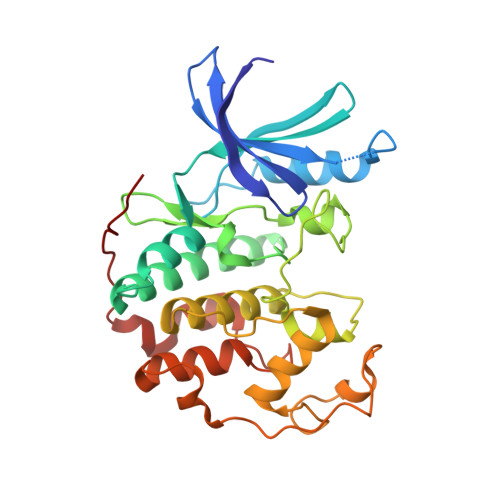A Novel Approach to the Discovery of Small-Molecule Ligands of CDK2.
Martin, M.P., Alam, R., Betzi, S., Ingles, D.J., Zhu, J.Y., Schonbrunn, E.(2012) Chembiochem 13: 2128-2136
- PubMed: 22893598
- DOI: https://doi.org/10.1002/cbic.201200316
- Primary Citation of Related Structures:
3TI1, 3TIY, 3TIZ, 4ERW, 4EZ3, 4EZ7 - PubMed Abstract:
In an attempt to identify novel small-molecule ligands of cyclin-dependent kinase 2 (CDK2) with potential as allosteric inhibitors, we have devised a robust and cost-effective fluorescence-based high-throughput screening assay. The assay is based on the specific interaction of CDK2 with the extrinsic fluorophore 8-anilino-1-naphthalene sulfonate (ANS), which binds to a large allosteric pocket adjacent to the ATP site. Hit compounds that displace ANS directly or indirectly from CDK2 are readily classified as ATP site binders or allosteric ligands through the use of staurosporine, which blocks the ATP site without displacing ANS. Pilot screening of 1453 compounds led to the discovery of 12 compounds with displacement activities (EC(50) values) ranging from 6 to 44 μM, all of which were classified as ATP-site-directed ligands. Four new type I inhibitor scaffolds were confirmed by X-ray crystallography. Although this small compound library contained only ATP-site-directed ligands, the application of this assay to large compound libraries has the potential to reveal previously unrecognized chemical scaffolds suitable for structure-based design of CDK2 inhibitors with new mechanisms of action.
Organizational Affiliation:
Drug Discovery Department, Moffitt Cancer Center and Research Institute, 12902 Magnolia Drive, Tampa, FL 33612, USA.
















